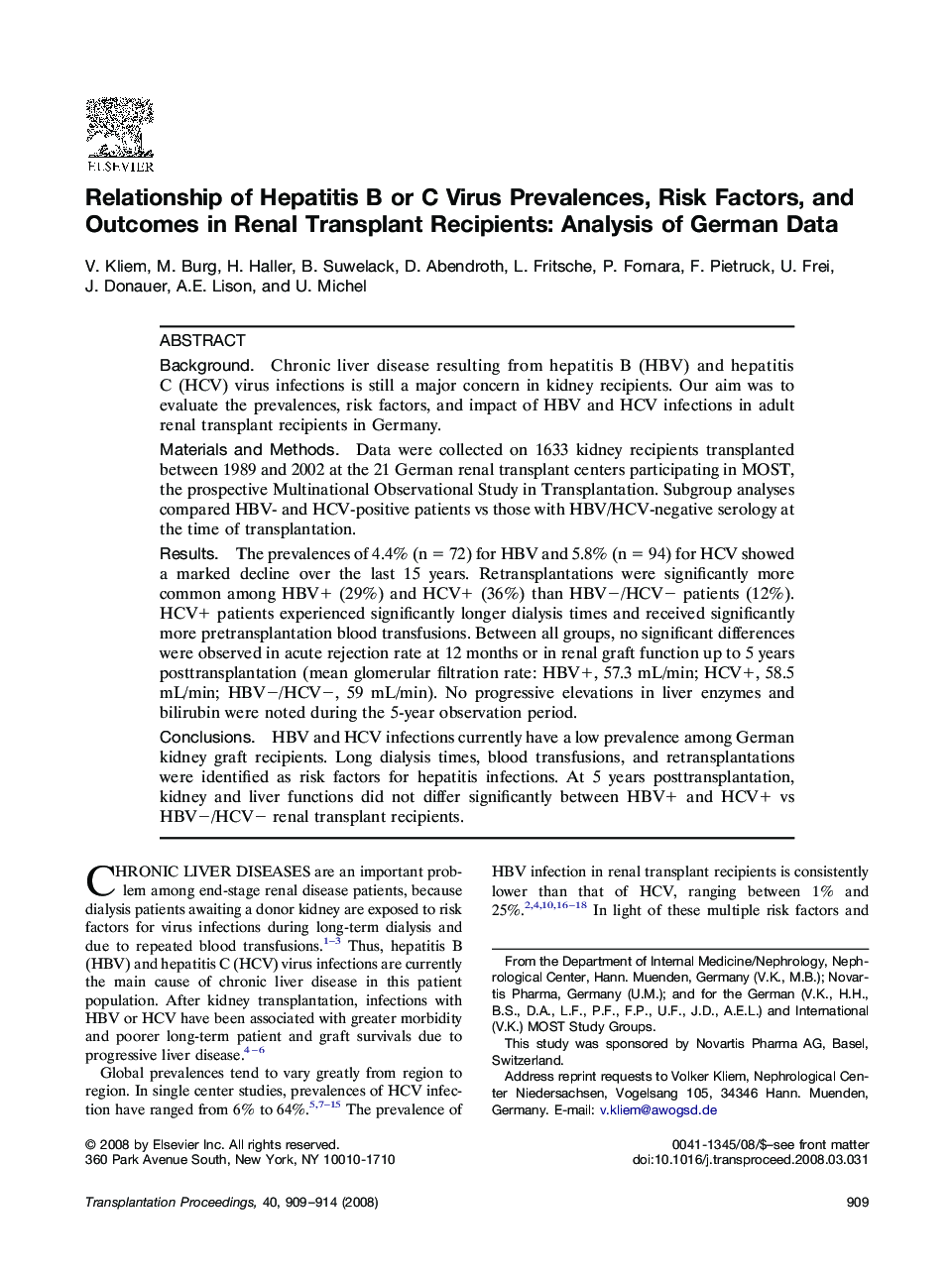| Article ID | Journal | Published Year | Pages | File Type |
|---|---|---|---|---|
| 4262068 | Transplantation Proceedings | 2008 | 6 Pages |
BackgroundChronic liver disease resulting from hepatitis B (HBV) and hepatitis C (HCV) virus infections is still a major concern in kidney recipients. Our aim was to evaluate the prevalences, risk factors, and impact of HBV and HCV infections in adult renal transplant recipients in Germany.Materials and MethodsData were collected on 1633 kidney recipients transplanted between 1989 and 2002 at the 21 German renal transplant centers participating in MOST, the prospective Multinational Observational Study in Transplantation. Subgroup analyses compared HBV- and HCV-positive patients vs those with HBV/HCV-negative serology at the time of transplantation.ResultsThe prevalences of 4.4% (n = 72) for HBV and 5.8% (n = 94) for HCV showed a marked decline over the last 15 years. Retransplantations were significantly more common among HBV+ (29%) and HCV+ (36%) than HBV−/HCV− patients (12%). HCV+ patients experienced significantly longer dialysis times and received significantly more pretransplantation blood transfusions. Between all groups, no significant differences were observed in acute rejection rate at 12 months or in renal graft function up to 5 years posttransplantation (mean glomerular filtration rate: HBV+, 57.3 mL/min; HCV+, 58.5 mL/min; HBV−/HCV−, 59 mL/min). No progressive elevations in liver enzymes and bilirubin were noted during the 5-year observation period.ConclusionsHBV and HCV infections currently have a low prevalence among German kidney graft recipients. Long dialysis times, blood transfusions, and retransplantations were identified as risk factors for hepatitis infections. At 5 years posttransplantation, kidney and liver functions did not differ significantly between HBV+ and HCV+ vs HBV−/HCV− renal transplant recipients.
